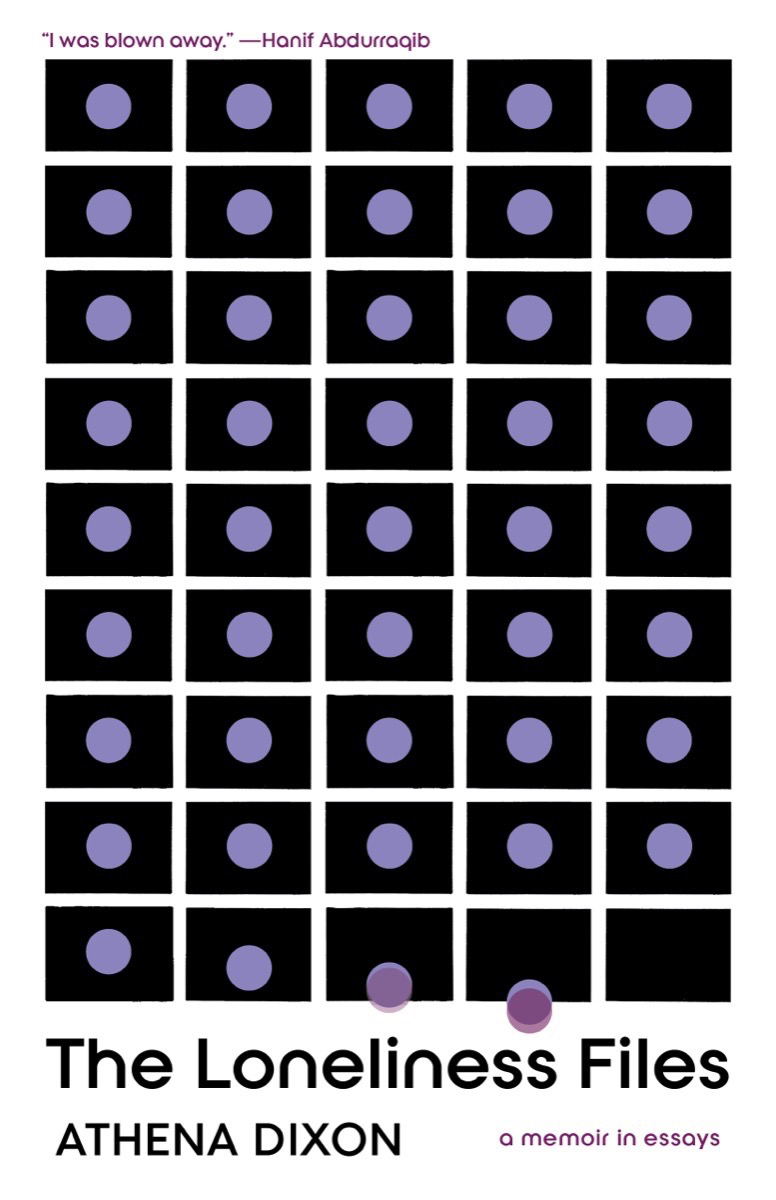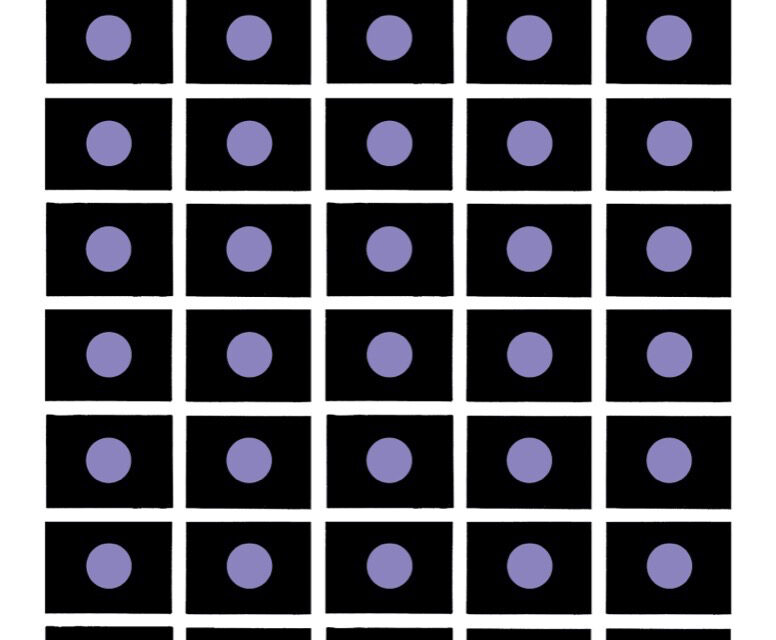
Athena Dixon
The Loneliness Files
(Tin House, 2023)
We’re living in what Surgeon General Vivek Murthy has described as an “epidemic of loneliness and isolation,” one that affects more than one-fifth of adults in the US alone. Amid a debate on how to track and treat loneliness as a health problem and as a social phenomenon, Athena Dixon’s new memoir in essays, The Loneliness Files, feels particularly timely.
For Dixon, loneliness stems from both physical distance—she lives more than 350 miles from her family and friends when the book begins—and digital life. Dixon, a poet and essayist, threads the theme of loneliness through essays that mix personal experience and cultural criticism, and that discuss everything from algorithms and The Truman Show to Jordan Peele’s Us and elementary school pictures.
At times, reading The Loneliness Files—as someone who lives alone and generally likes it—felt uncomfortable. I resisted a few of the book’s early essays because I so often feel pressured to defend being alone in a world that sees aloneness as entirely negative. I didn’t want to dwell on some of the ideas Dixon raises, particularly in passages like, “Loneliness and isolation have been a slow build of contentment over the years before the sudden revelation of how the two are really disconnect disguised as choice.” Like Dixon, I sometimes turn a corner from contentment to an abrupt realization that I’ve been alone for too long, and those moments raise the specter of a future in which that loneliness will be harder to rectify.
But as I went deeper into Dixon’s essays, I settled into the discomfort some of her observations raised and found myself engaged by how effectively her writing captures what it feels like both to be lonely and to spend a lot of time by oneself. Women like Joyce Carol Vincent, a Londoner who died alone, and Elisa Lam, who died while traveling alone in Los Angeles, are introduced without much background information, and terms like “sonder”—“the realization that each random passerby is living a life as vivid and complex as your own”—are used and then defined pages later. It made me feel as though I’d been dropped deep in the middle of Dixon’s brain, following her through topics she thinks about so often that they’re familiar, making background explanations unnecessary.
Dixon’s writing is also powered by a certainty that she is not the only one who feels the way she describes, and that there is a value in straightforwardly and vulnerably saying so. “I am overwhelmingly lonely … I will not believe there are not scores of others like me,” she writes. “I know there are those who feel the world is always just a little too far away or a little too close.… Those who would love to be a part of all life has to offer fully, but something just doesn’t click.” At the same time, Dixon asserts the importance of choosing to untether when necessary. I see The Loneliness Files appealing to readers seeking both confirmation of shared experiences and validation of choices that society at large tends to stigmatize.
While The Loneliness Files effectively captures the individual experience of loneliness, I found myself wishing that the book offered more acknowledgement of the potential systemic and societal causes of loneliness, too. Dixon begins to get at this in a chapter about dating apps, where she writes about OkCupid data showing Black women were rated as less attractive than women of other races by men on the site. “Where does that leave me? A Black woman. Older. Larger. Taller. None of these descriptors fall within the spectrum of what society has deemed conventionally attractive and desirable,” she writes. Society also has few structures to support people who live outside of a certain set of family and household formations, leaving those who live alone or far from family and friends (as just a few examples) to find their own ways out of loneliness. Perhaps some of those who are lonely do “feel the world is always just a little too far away or a little too close,” that “something just doesn’t click.” But perhaps some of them are also lonely because our society offers them fewer established forms of community.
The internet is one place where those without established physical communities can find connection, but as Dixon powerfully expresses, that connection can involve a degree of fragmentation that deepens isolation. “I think I, and so many who grew up in Gen X and beyond, understand how it feels to live parallel lives. To sometimes be some other version of yourself ghosting just behind the surface of your flesh.” Even where connection exists, a sense of wholeness can be harder to find—or is sometimes found only beyond the confines of our physical surroundings. And that means that “sometimes the disconnection that comes from escapism makes it nearly impossible to come back.… The physical form can actually be the trap—the true place where you aren’t properly fastened to the world.” But The Loneliness Files is a convincing argument that being unfastened from the world, being intentionally untethered, has its own value. It has allowed Dixon to bring some of the truth of that experience back for others.





